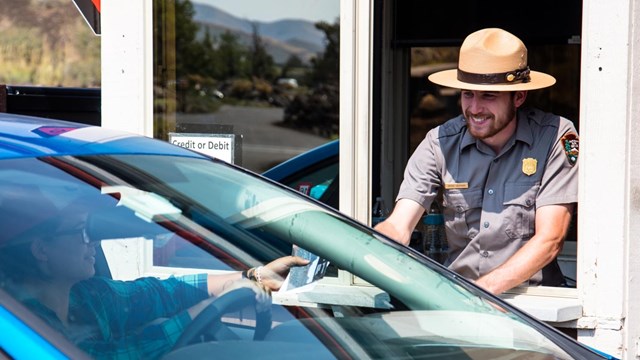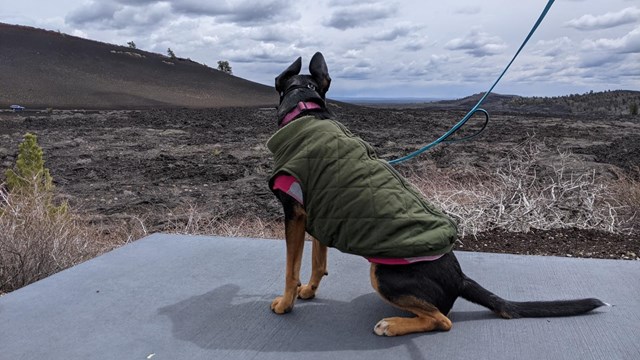|
Craters of the Moon National Monument and Preserve is a "weird and scenic" landscape of lava and sagebrush, located in southern Idaho. Most visitors explore the trails, caves, and scenic overlooks along the park's 7-mile Loop Road, but more opportunities abound in the park's vast wilderness. The Plan Your Visit page is a great place to start planning your trip to the "Moon." 
Fees & Passes
Information about entrance fees and park passes 
Pets
Tips for visiting Craters with pets 
Exploring Craters: Top 10 Tips
Our best advice for making the most of your Craters adventure! 
Things To Do
Visiting Craters of the Moon during winter opens up a whole new way to explore the lava landscape. When Should I Visit?Different seasons bring unique opportunities to explore, as well as their own challenges. Check the weather forecast before visiting the park. Spring (April / May / June)Spring comes a bit late to the high desert of southern Idaho. At Craters of the Moon, winter snowpack may last into early May and the Loop Road is not usually open to vehicles until mid-April. April and May can still see snowstorms that temporarily close the Loop Road, snow on many of the trails, and closure of the caves due to hazardous ice. Temperatures can vary from warm to cold during the daytime to cold during the night. Camping facilities and services are limited at this time. From mid- to late June, the wildflower bloom at the park is at its peak. Longer hikes into the wilderness are recommended during this period of moderate temperatures. Summer (July / August)Summers can be described as warm to hot during the day with rapid cooling during the evening that leads to chilly nights. Trail hiking is best planned during the morning hours with a visit to the cool inside of a cave recommended for the afternoons. Daytime temperatures usually exceed 80°F (27°C) and the surface of the dark lava rocks can reach up to 170°F (76°C). Visitation peaks during this period, but most attractions can still be enjoyed, and solitude is still available to those who seek it. The campground generally fills by the evening on most nights. Fall (September / October)Temperatures cool down during this period and the lack of wind can make this some of the most ideal weather during the entire year. Summer crowds are gone, making it an ideal time to see the park on your own. This is a good time for backpacking into the wilderness area of the monument. Campsites are easy to find, and water and facilities in the campground can be available into early October, depending on the low nighttime temperatures. Aspen in the mountain areas to the north of the monument take on autumn colors during this time. Heavy fog is not uncommon in the mornings and evenings and sometimes lasts the whole day. Winter (November / December / January / February / March)Winter covers many months at this latitude and altitude, from November through March. The Loop Road usually closes by mid-November and the cross-country ski track is prepared as soon as a good snow base forms. The visitor center closes in December and reopens in January. Snowshoeing or skiing are great ways to explore the park and snowshoes are available for loan at the visitor center when open. Winter temperatures can dip below 0°F (-18°C) and blizzard conditions can occur during any winter month. As in the fall, freezing fog can be present in the park and along the highway in the mornings and evenings, but will sometimes last all day. Live highway conditions can be viewed at 511.idaho.gov. |
Last updated: April 17, 2025
